Integrated Development of Fisheries Learning Centers and Aquatic Production Innovation to Strengthen Community-Based Entrepreneurship through the BCG Economic Model
The Faculty of
Fisheries Technology and Aquatic Resources has implemented a project to enhance
the capacity of Fisheries and Aquatic Innovation Learning Centers within the
faculty and in targeted community and school areas. The project aims to build
strength, sustainability, and comprehensive aquaculture entrepreneurship based
on the Bio-Circular-Green (BCG) Economic Model, by transferring academic
knowledge and research innovations from faculty experts to communities through
the learning centers. The Faculty has developed 14 Fisheries and Aquatic
Innovation Learning Centers, divided into four groups covering agrotourism,
aquatic resources, aquaculture, processing, and entrepreneurship. The project
was held from October 1, 2024, to September 30, 2025, with a budget of 300,000
THB (9,236.60 USD) and a total of 820 participants, including students,
farmers, and locals. This project effectively connects academic knowledge,
research, and innovation with real-world practice, creating living,
self-sustaining fisheries learning ecosystems. It empowers students,
communities, and schools to become sustainable aquaculture entrepreneurs,
strengthens local economies, and promotes environmental stewardship in line
with Thailand’s BCG economic vision.
The key outcomes are
as follows:
1.The 14 learning
centers are now equipped and capable of delivering high-quality academic
services and expanding activities to community networks.
2.Students gain
hands-on experience through living classrooms both in the university and local
communities.
3.The faculty
generates income from academic services, training programs, study visits, and
prototype product sales.
4.The learning
centers are recognized by farmers, schools, and local agencies as reliable and
practical sources of fisheries technology.
5.Faculty members
and staff successfully integrate teaching and research outcomes into community
applications.
6.Students develop
professional skills through real-world practice, bridging classroom learning
with field experience.
7.Target communities
and schools receive context-appropriate aquaculture knowledge, enabling them to
develop their own learning centers.
8.The project
establishes living learning center models that serve as prototypes for future
academic service frameworks.
9.Communities and
schools gain comprehensive knowledge in integrated aquaculture entrepreneurship
— from fish production, cost reduction, and product value addition to
market-oriented processing — aligning with the BCG Economic Model and fostering
regional development.

โครงการการพัฒนาศักยภาพฐานเรียนรู้ทางการประมงและนวัตกรรมการผลิตสัตว์น้ำแบบบูรณาการภายในคณะเทคโนโลยีการประมงและทรัพยากรทางน้ำ และพื้นที่ชุมชนหรือโรงเรียนเป้าหมาย เพื่อสร้างความเข้มแข็ง ยั่งยืน และพัฒนาเป็นผู้ประกอบการเพาะเลี้ยงสัตว์น้ำแบบครบวงจรด้วยโมเดลเศรษฐกิจ BCG
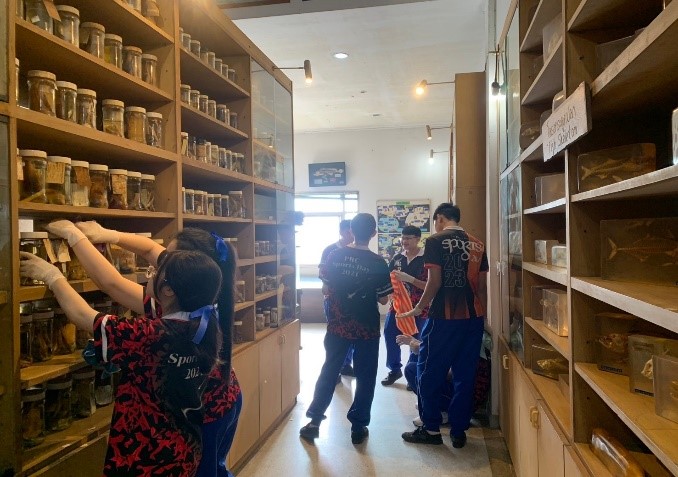
โครงการการพัฒนาศักยภาพฐานเรียนรู้ทางการประมงและนวัตกรรมการผลิตสัตว์น้ำแบบบูรณาการภายในคณะเทคโนโลยีการประมงและทรัพยากรทางน้ำ และพื้นที่ชุมชนหรือโรงเรียนเป้าหมาย เพื่อสร้างความเข้มแข็ง ยั่งยืน และพัฒนาเป็นผู้ประกอบการเพาะเลี้ยงสัตว์น้ำแบบครบวงจรด้วยโมเดลเศรษฐกิจ BCG
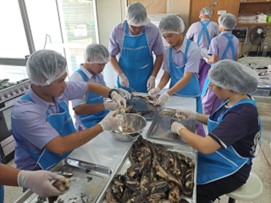
โครงการการพัฒนาศักยภาพฐานเรียนรู้ทางการประมงและนวัตกรรมการผลิตสัตว์น้ำแบบบูรณาการภายในคณะเทคโนโลยีการประมงและทรัพยากรทางน้ำ และพื้นที่ชุมชนหรือโรงเรียนเป้าหมาย เพื่อสร้างความเข้มแข็ง ยั่งยืน และพัฒนาเป็นผู้ประกอบการเพาะเลี้ยงสัตว์น้ำแบบครบวงจรด้วยโมเดลเศรษฐกิจ BCG
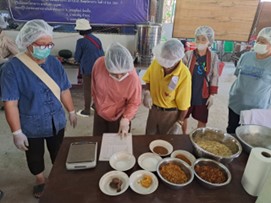
โครงการการพัฒนาศักยภาพฐานเรียนรู้ทางการประมงและนวัตกรรมการผลิตสัตว์น้ำแบบบูรณาการภายในคณะเทคโนโลยีการประมงและทรัพยากรทางน้ำ และพื้นที่ชุมชนหรือโรงเรียนเป้าหมาย เพื่อสร้างความเข้มแข็ง ยั่งยืน และพัฒนาเป็นผู้ประกอบการเพาะเลี้ยงสัตว์น้ำแบบครบวงจรด้วยโมเดลเศรษฐกิจ BCG
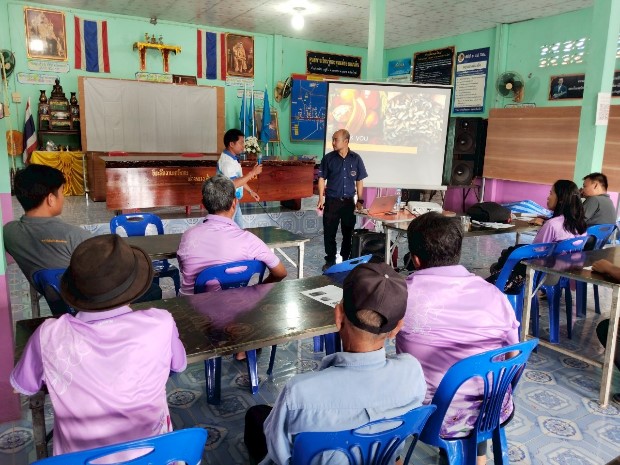
โครงการการพัฒนาศักยภาพฐานเรียนรู้ทางการประมงและนวัตกรรมการผลิตสัตว์น้ำแบบบูรณาการภายในคณะเทคโนโลยีการประมงและทรัพยากรทางน้ำ และพื้นที่ชุมชนหรือโรงเรียนเป้าหมาย เพื่อสร้างความเข้มแข็ง ยั่งยืน และพัฒนาเป็นผู้ประกอบการเพาะเลี้ยงสัตว์น้ำแบบครบวงจรด้วยโมเดลเศรษฐกิจ BCG

โครงการการพัฒนาศักยภาพฐานเรียนรู้ทางการประมงและนวัตกรรมการผลิตสัตว์น้ำแบบบูรณาการภายในคณะเทคโนโลยีการประมงและทรัพยากรทางน้ำ และพื้นที่ชุมชนหรือโรงเรียนเป้าหมาย เพื่อสร้างความเข้มแข็ง ยั่งยืน และพัฒนาเป็นผู้ประกอบการเพาะเลี้ยงสัตว์น้ำแบบครบวงจรด้วยโมเดลเศรษฐกิจ BCG
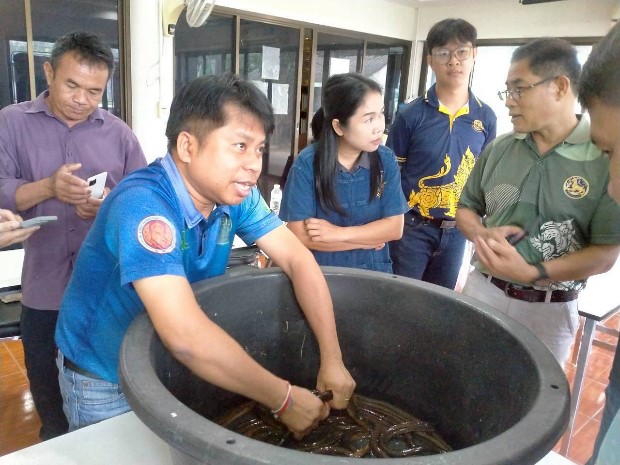
โครงการการพัฒนาศักยภาพฐานเรียนรู้ทางการประมงและนวัตกรรมการผลิตสัตว์น้ำแบบบูรณาการภายในคณะเทคโนโลยีการประมงและทรัพยากรทางน้ำ และพื้นที่ชุมชนหรือโรงเรียนเป้าหมาย เพื่อสร้างความเข้มแข็ง ยั่งยืน และพัฒนาเป็นผู้ประกอบการเพาะเลี้ยงสัตว์น้ำแบบครบวงจรด้วยโมเดลเศรษฐกิจ BCG
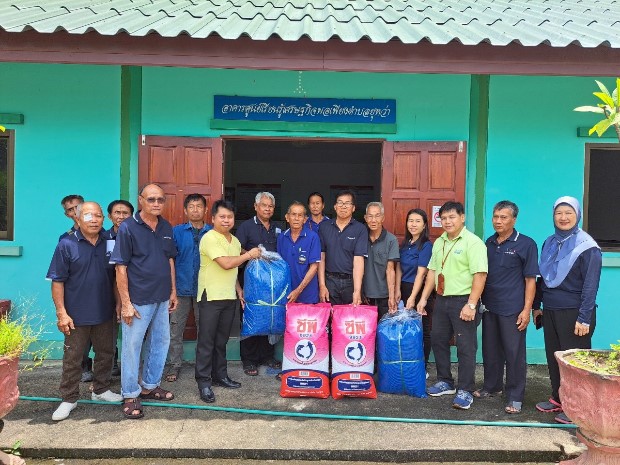
โครงการการพัฒนาศักยภาพฐานเรียนรู้ทางการประมงและนวัตกรรมการผลิตสัตว์น้ำแบบบูรณาการภายในคณะเทคโนโลยีการประมงและทรัพยากรทางน้ำ และพื้นที่ชุมชนหรือโรงเรียนเป้าหมาย เพื่อสร้างความเข้มแข็ง ยั่งยืน และพัฒนาเป็นผู้ประกอบการเพาะเลี้ยงสัตว์น้ำแบบครบวงจรด้วยโมเดลเศรษฐกิจ BCG

โครงการการพัฒนาศักยภาพฐานเรียนรู้ทางการประมงและนวัตกรรมการผลิตสัตว์น้ำแบบบูรณาการภายในคณะเทคโนโลยีการประมงและทรัพยากรทางน้ำ และพื้นที่ชุมชนหรือโรงเรียนเป้าหมาย เพื่อสร้างความเข้มแข็ง ยั่งยืน และพัฒนาเป็นผู้ประกอบการเพาะเลี้ยงสัตว์น้ำแบบครบวงจรด้วยโมเดลเศรษฐกิจ BCG

โครงการการพัฒนาศักยภาพฐานเรียนรู้ทางการประมงและนวัตกรรมการผลิตสัตว์น้ำแบบบูรณาการภายในคณะเทคโนโลยีการประมงและทรัพยากรทางน้ำ และพื้นที่ชุมชนหรือโรงเรียนเป้าหมาย เพื่อสร้างความเข้มแข็ง ยั่งยืน และพัฒนาเป็นผู้ประกอบการเพาะเลี้ยงสัตว์น้ำแบบครบวงจรด้วยโมเดลเศรษฐกิจ BCG

โครงการการพัฒนาศักยภาพฐานเรียนรู้ทางการประมงและนวัตกรรมการผลิตสัตว์น้ำแบบบูรณาการภายในคณะเทคโนโลยีการประมงและทรัพยากรทางน้ำ และพื้นที่ชุมชนหรือโรงเรียนเป้าหมาย เพื่อสร้างความเข้มแข็ง ยั่งยืน และพัฒนาเป็นผู้ประกอบการเพาะเลี้ยงสัตว์น้ำแบบครบวงจรด้วยโมเดลเศรษฐกิจ BCG

โครงการการพัฒนาศักยภาพฐานเรียนรู้ทางการประมงและนวัตกรรมการผลิตสัตว์น้ำแบบบูรณาการภายในคณะเทคโนโลยีการประมงและทรัพยากรทางน้ำ และพื้นที่ชุมชนหรือโรงเรียนเป้าหมาย เพื่อสร้างความเข้มแข็ง ยั่งยืน และพัฒนาเป็นผู้ประกอบการเพาะเลี้ยงสัตว์น้ำแบบครบวงจรด้วยโมเดลเศรษฐกิจ BCG

โครงการการพัฒนาศักยภาพฐานเรียนรู้ทางการประมงและนวัตกรรมการผลิตสัตว์น้ำแบบบูรณาการภายในคณะเทคโนโลยีการประมงและทรัพยากรทางน้ำ และพื้นที่ชุมชนหรือโรงเรียนเป้าหมาย เพื่อสร้างความเข้มแข็ง ยั่งยืน และพัฒนาเป็นผู้ประกอบการเพาะเลี้ยงสัตว์น้ำแบบครบวงจรด้วยโมเดลเศรษฐกิจ BCG

โครงการการพัฒนาศักยภาพฐานเรียนรู้ทางการประมงและนวัตกรรมการผลิตสัตว์น้ำแบบบูรณาการภายในคณะเทคโนโลยีการประมงและทรัพยากรทางน้ำ และพื้นที่ชุมชนหรือโรงเรียนเป้าหมาย เพื่อสร้างความเข้มแข็ง ยั่งยืน และพัฒนาเป็นผู้ประกอบการเพาะเลี้ยงสัตว์น้ำแบบครบวงจรด้วยโมเดลเศรษฐกิจ BCG

โครงการการพัฒนาศักยภาพฐานเรียนรู้ทางการประมงและนวัตกรรมการผลิตสัตว์น้ำแบบบูรณาการภายในคณะเทคโนโลยีการประมงและทรัพยากรทางน้ำ และพื้นที่ชุมชนหรือโรงเรียนเป้าหมาย เพื่อสร้างความเข้มแข็ง ยั่งยืน และพัฒนาเป็นผู้ประกอบการเพาะเลี้ยงสัตว์น้ำแบบครบวงจรด้วยโมเดลเศรษฐกิจ BCG

โครงการการพัฒนาศักยภาพฐานเรียนรู้ทางการประมงและนวัตกรรมการผลิตสัตว์น้ำแบบบูรณาการภายในคณะเทคโนโลยีการประมงและทรัพยากรทางน้ำ และพื้นที่ชุมชนหรือโรงเรียนเป้าหมาย เพื่อสร้างความเข้มแข็ง ยั่งยืน และพัฒนาเป็นผู้ประกอบการเพาะเลี้ยงสัตว์น้ำแบบครบวงจรด้วยโมเดลเศรษฐกิจ BCG

โครงการการพัฒนาศักยภาพฐานเรียนรู้ทางการประมงและนวัตกรรมการผลิตสัตว์น้ำแบบบูรณาการภายในคณะเทคโนโลยีการประมงและทรัพยากรทางน้ำ และพื้นที่ชุมชนหรือโรงเรียนเป้าหมาย เพื่อสร้างความเข้มแข็ง ยั่งยืน และพัฒนาเป็นผู้ประกอบการเพาะเลี้ยงสัตว์น้ำแบบครบวงจรด้วยโมเดลเศรษฐกิจ BCG

โครงการการพัฒนาศักยภาพฐานเรียนรู้ทางการประมงและนวัตกรรมการผลิตสัตว์น้ำแบบบูรณาการภายในคณะเทคโนโลยีการประมงและทรัพยากรทางน้ำ และพื้นที่ชุมชนหรือโรงเรียนเป้าหมาย เพื่อสร้างความเข้มแข็ง ยั่งยืน และพัฒนาเป็นผู้ประกอบการเพาะเลี้ยงสัตว์น้ำแบบครบวงจรด้วยโมเดลเศรษฐกิจ BCG

โครงการการพัฒนาศักยภาพฐานเรียนรู้ทางการประมงและนวัตกรรมการผลิตสัตว์น้ำแบบบูรณาการภายในคณะเทคโนโลยีการประมงและทรัพยากรทางน้ำ และพื้นที่ชุมชนหรือโรงเรียนเป้าหมาย เพื่อสร้างความเข้มแข็ง ยั่งยืน และพัฒนาเป็นผู้ประกอบการเพาะเลี้ยงสัตว์น้ำแบบครบวงจรด้วยโมเดลเศรษฐกิจ BCG

โครงการการพัฒนาศักยภาพฐานเรียนรู้ทางการประมงและนวัตกรรมการผลิตสัตว์น้ำแบบบูรณาการภายในคณะเทคโนโลยีการประมงและทรัพยากรทางน้ำ และพื้นที่ชุมชนหรือโรงเรียนเป้าหมาย เพื่อสร้างความเข้มแข็ง ยั่งยืน และพัฒนาเป็นผู้ประกอบการเพาะเลี้ยงสัตว์น้ำแบบครบวงจรด้วยโมเดลเศรษฐกิจ BCG

โครงการการพัฒนาศักยภาพฐานเรียนรู้ทางการประมงและนวัตกรรมการผลิตสัตว์น้ำแบบบูรณาการภายในคณะเทคโนโลยีการประมงและทรัพยากรทางน้ำ และพื้นที่ชุมชนหรือโรงเรียนเป้าหมาย เพื่อสร้างความเข้มแข็ง ยั่งยืน และพัฒนาเป็นผู้ประกอบการเพาะเลี้ยงสัตว์น้ำแบบครบวงจรด้วยโมเดลเศรษฐกิจ BCG

โครงการการพัฒนาศักยภาพฐานเรียนรู้ทางการประมงและนวัตกรรมการผลิตสัตว์น้ำแบบบูรณาการภายในคณะเทคโนโลยีการประมงและทรัพยากรทางน้ำ และพื้นที่ชุมชนหรือโรงเรียนเป้าหมาย เพื่อสร้างความเข้มแข็ง ยั่งยืน และพัฒนาเป็นผู้ประกอบการเพาะเลี้ยงสัตว์น้ำแบบครบวงจรด้วยโมเดลเศรษฐกิจ BCG

โครงการการพัฒนาศักยภาพฐานเรียนรู้ทางการประมงและนวัตกรรมการผลิตสัตว์น้ำแบบบูรณาการภายในคณะเทคโนโลยีการประมงและทรัพยากรทางน้ำ และพื้นที่ชุมชนหรือโรงเรียนเป้าหมาย เพื่อสร้างความเข้มแข็ง ยั่งยืน และพัฒนาเป็นผู้ประกอบการเพาะเลี้ยงสัตว์น้ำแบบครบวงจรด้วยโมเดลเศรษฐกิจ BCG

โครงการการพัฒนาศักยภาพฐานเรียนรู้ทางการประมงและนวัตกรรมการผลิตสัตว์น้ำแบบบูรณาการภายในคณะเทคโนโลยีการประมงและทรัพยากรทางน้ำ และพื้นที่ชุมชนหรือโรงเรียนเป้าหมาย เพื่อสร้างความเข้มแข็ง ยั่งยืน และพัฒนาเป็นผู้ประกอบการเพาะเลี้ยงสัตว์น้ำแบบครบวงจรด้วยโมเดลเศรษฐกิจ BCG

โครงการการพัฒนาศักยภาพฐานเรียนรู้ทางการประมงและนวัตกรรมการผลิตสัตว์น้ำแบบบูรณาการภายในคณะเทคโนโลยีการประมงและทรัพยากรทางน้ำ และพื้นที่ชุมชนหรือโรงเรียนเป้าหมาย เพื่อสร้างความเข้มแข็ง ยั่งยืน และพัฒนาเป็นผู้ประกอบการเพาะเลี้ยงสัตว์น้ำแบบครบวงจรด้วยโมเดลเศรษฐกิจ BCG

โครงการการพัฒนาศักยภาพฐานเรียนรู้ทางการประมงและนวัตกรรมการผลิตสัตว์น้ำแบบบูรณาการภายในคณะเทคโนโลยีการประมงและทรัพยากรทางน้ำ และพื้นที่ชุมชนหรือโรงเรียนเป้าหมาย เพื่อสร้างความเข้มแข็ง ยั่งยืน และพัฒนาเป็นผู้ประกอบการเพาะเลี้ยงสัตว์น้ำแบบครบวงจรด้วยโมเดลเศรษฐกิจ BCG

โครงการการพัฒนาศักยภาพฐานเรียนรู้ทางการประมงและนวัตกรรมการผลิตสัตว์น้ำแบบบูรณาการภายในคณะเทคโนโลยีการประมงและทรัพยากรทางน้ำ และพื้นที่ชุมชนหรือโรงเรียนเป้าหมาย เพื่อสร้างความเข้มแข็ง ยั่งยืน และพัฒนาเป็นผู้ประกอบการเพาะเลี้ยงสัตว์น้ำแบบครบวงจรด้วยโมเดลเศรษฐกิจ BCG

โครงการการพัฒนาศักยภาพฐานเรียนรู้ทางการประมงและนวัตกรรมการผลิตสัตว์น้ำแบบบูรณาการภายในคณะเทคโนโลยีการประมงและทรัพยากรทางน้ำ และพื้นที่ชุมชนหรือโรงเรียนเป้าหมาย เพื่อสร้างความเข้มแข็ง ยั่งยืน และพัฒนาเป็นผู้ประกอบการเพาะเลี้ยงสัตว์น้ำแบบครบวงจรด้วยโมเดลเศรษฐกิจ BCG

โครงการการพัฒนาศักยภาพฐานเรียนรู้ทางการประมงและนวัตกรรมการผลิตสัตว์น้ำแบบบูรณาการภายในคณะเทคโนโลยีการประมงและทรัพยากรทางน้ำ และพื้นที่ชุมชนหรือโรงเรียนเป้าหมาย เพื่อสร้างความเข้มแข็ง ยั่งยืน และพัฒนาเป็นผู้ประกอบการเพาะเลี้ยงสัตว์น้ำแบบครบวงจรด้วยโมเดลเศรษฐกิจ BCG

โครงการการพัฒนาศักยภาพฐานเรียนรู้ทางการประมงและนวัตกรรมการผลิตสัตว์น้ำแบบบูรณาการภายในคณะเทคโนโลยีการประมงและทรัพยากรทางน้ำ และพื้นที่ชุมชนหรือโรงเรียนเป้าหมาย เพื่อสร้างความเข้มแข็ง ยั่งยืน และพัฒนาเป็นผู้ประกอบการเพาะเลี้ยงสัตว์น้ำแบบครบวงจรด้วยโมเดลเศรษฐกิจ BCG

โครงการการพัฒนาศักยภาพฐานเรียนรู้ทางการประมงและนวัตกรรมการผลิตสัตว์น้ำแบบบูรณาการภายในคณะเทคโนโลยีการประมงและทรัพยากรทางน้ำ และพื้นที่ชุมชนหรือโรงเรียนเป้าหมาย เพื่อสร้างความเข้มแข็ง ยั่งยืน และพัฒนาเป็นผู้ประกอบการเพาะเลี้ยงสัตว์น้ำแบบครบวงจรด้วยโมเดลเศรษฐกิจ BCG

โครงการการพัฒนาศักยภาพฐานเรียนรู้ทางการประมงและนวัตกรรมการผลิตสัตว์น้ำแบบบูรณาการภายในคณะเทคโนโลยีการประมงและทรัพยากรทางน้ำ และพื้นที่ชุมชนหรือโรงเรียนเป้าหมาย เพื่อสร้างความเข้มแข็ง ยั่งยืน และพัฒนาเป็นผู้ประกอบการเพาะเลี้ยงสัตว์น้ำแบบครบวงจรด้วยโมเดลเศรษฐกิจ BCG

โครงการการพัฒนาศักยภาพฐานเรียนรู้ทางการประมงและนวัตกรรมการผลิตสัตว์น้ำแบบบูรณาการภายในคณะเทคโนโลยีการประมงและทรัพยากรทางน้ำ และพื้นที่ชุมชนหรือโรงเรียนเป้าหมาย เพื่อสร้างความเข้มแข็ง ยั่งยืน และพัฒนาเป็นผู้ประกอบการเพาะเลี้ยงสัตว์น้ำแบบครบวงจรด้วยโมเดลเศรษฐกิจ BCG

โครงการการพัฒนาศักยภาพฐานเรียนรู้ทางการประมงและนวัตกรรมการผลิตสัตว์น้ำแบบบูรณาการภายในคณะเทคโนโลยีการประมงและทรัพยากรทางน้ำ และพื้นที่ชุมชนหรือโรงเรียนเป้าหมาย เพื่อสร้างความเข้มแข็ง ยั่งยืน และพัฒนาเป็นผู้ประกอบการเพาะเลี้ยงสัตว์น้ำแบบครบวงจรด้วยโมเดลเศรษฐกิจ BCG

โครงการการพัฒนาศักยภาพฐานเรียนรู้ทางการประมงและนวัตกรรมการผลิตสัตว์น้ำแบบบูรณาการภายในคณะเทคโนโลยีการประมงและทรัพยากรทางน้ำ และพื้นที่ชุมชนหรือโรงเรียนเป้าหมาย เพื่อสร้างความเข้มแข็ง ยั่งยืน และพัฒนาเป็นผู้ประกอบการเพาะเลี้ยงสัตว์น้ำแบบครบวงจรด้วยโมเดลเศรษฐกิจ BCG

โครงการการพัฒนาศักยภาพฐานเรียนรู้ทางการประมงและนวัตกรรมการผลิตสัตว์น้ำแบบบูรณาการภายในคณะเทคโนโลยีการประมงและทรัพยากรทางน้ำ และพื้นที่ชุมชนหรือโรงเรียนเป้าหมาย เพื่อสร้างความเข้มแข็ง ยั่งยืน และพัฒนาเป็นผู้ประกอบการเพาะเลี้ยงสัตว์น้ำแบบครบวงจรด้วยโมเดลเศรษฐกิจ BCG

โครงการการพัฒนาศักยภาพฐานเรียนรู้ทางการประมงและนวัตกรรมการผลิตสัตว์น้ำแบบบูรณาการภายในคณะเทคโนโลยีการประมงและทรัพยากรทางน้ำ และพื้นที่ชุมชนหรือโรงเรียนเป้าหมาย เพื่อสร้างความเข้มแข็ง ยั่งยืน และพัฒนาเป็นผู้ประกอบการเพาะเลี้ยงสัตว์น้ำแบบครบวงจรด้วยโมเดลเศรษฐกิจ BCG

โครงการการพัฒนาศักยภาพฐานเรียนรู้ทางการประมงและนวัตกรรมการผลิตสัตว์น้ำแบบบูรณาการภายในคณะเทคโนโลยีการประมงและทรัพยากรทางน้ำ และพื้นที่ชุมชนหรือโรงเรียนเป้าหมาย เพื่อสร้างความเข้มแข็ง ยั่งยืน และพัฒนาเป็นผู้ประกอบการเพาะเลี้ยงสัตว์น้ำแบบครบวงจรด้วยโมเดลเศรษฐกิจ BCG

โครงการการพัฒนาศักยภาพฐานเรียนรู้ทางการประมงและนวัตกรรมการผลิตสัตว์น้ำแบบบูรณาการภายในคณะเทคโนโลยีการประมงและทรัพยากรทางน้ำ และพื้นที่ชุมชนหรือโรงเรียนเป้าหมาย เพื่อสร้างความเข้มแข็ง ยั่งยืน และพัฒนาเป็นผู้ประกอบการเพาะเลี้ยงสัตว์น้ำแบบครบวงจรด้วยโมเดลเศรษฐกิจ BCG

โครงการการพัฒนาศักยภาพฐานเรียนรู้ทางการประมงและนวัตกรรมการผลิตสัตว์น้ำแบบบูรณาการภายในคณะเทคโนโลยีการประมงและทรัพยากรทางน้ำ และพื้นที่ชุมชนหรือโรงเรียนเป้าหมาย เพื่อสร้างความเข้มแข็ง ยั่งยืน และพัฒนาเป็นผู้ประกอบการเพาะเลี้ยงสัตว์น้ำแบบครบวงจรด้วยโมเดลเศรษฐกิจ BCG

โครงการการพัฒนาศักยภาพฐานเรียนรู้ทางการประมงและนวัตกรรมการผลิตสัตว์น้ำแบบบูรณาการภายในคณะเทคโนโลยีการประมงและทรัพยากรทางน้ำ และพื้นที่ชุมชนหรือโรงเรียนเป้าหมาย เพื่อสร้างความเข้มแข็ง ยั่งยืน และพัฒนาเป็นผู้ประกอบการเพาะเลี้ยงสัตว์น้ำแบบครบวงจรด้วยโมเดลเศรษฐกิจ BCG

โครงการการพัฒนาศักยภาพฐานเรียนรู้ทางการประมงและนวัตกรรมการผลิตสัตว์น้ำแบบบูรณาการภายในคณะเทคโนโลยีการประมงและทรัพยากรทางน้ำ และพื้นที่ชุมชนหรือโรงเรียนเป้าหมาย เพื่อสร้างความเข้มแข็ง ยั่งยืน และพัฒนาเป็นผู้ประกอบการเพาะเลี้ยงสัตว์น้ำแบบครบวงจรด้วยโมเดลเศรษฐกิจ BCG

โครงการการพัฒนาศักยภาพฐานเรียนรู้ทางการประมงและนวัตกรรมการผลิตสัตว์น้ำแบบบูรณาการภายในคณะเทคโนโลยีการประมงและทรัพยากรทางน้ำ และพื้นที่ชุมชนหรือโรงเรียนเป้าหมาย เพื่อสร้างความเข้มแข็ง ยั่งยืน และพัฒนาเป็นผู้ประกอบการเพาะเลี้ยงสัตว์น้ำแบบครบวงจรด้วยโมเดลเศรษฐกิจ BCG

โครงการการพัฒนาศักยภาพฐานเรียนรู้ทางการประมงและนวัตกรรมการผลิตสัตว์น้ำแบบบูรณาการภายในคณะเทคโนโลยีการประมงและทรัพยากรทางน้ำ และพื้นที่ชุมชนหรือโรงเรียนเป้าหมาย เพื่อสร้างความเข้มแข็ง ยั่งยืน และพัฒนาเป็นผู้ประกอบการเพาะเลี้ยงสัตว์น้ำแบบครบวงจรด้วยโมเดลเศรษฐกิจ BCG

โครงการการพัฒนาศักยภาพฐานเรียนรู้ทางการประมงและนวัตกรรมการผลิตสัตว์น้ำแบบบูรณาการภายในคณะเทคโนโลยีการประมงและทรัพยากรทางน้ำ และพื้นที่ชุมชนหรือโรงเรียนเป้าหมาย เพื่อสร้างความเข้มแข็ง ยั่งยืน และพัฒนาเป็นผู้ประกอบการเพาะเลี้ยงสัตว์น้ำแบบครบวงจรด้วยโมเดลเศรษฐกิจ BCG

โครงการการพัฒนาศักยภาพฐานเรียนรู้ทางการประมงและนวัตกรรมการผลิตสัตว์น้ำแบบบูรณาการภายในคณะเทคโนโลยีการประมงและทรัพยากรทางน้ำ และพื้นที่ชุมชนหรือโรงเรียนเป้าหมาย เพื่อสร้างความเข้มแข็ง ยั่งยืน และพัฒนาเป็นผู้ประกอบการเพาะเลี้ยงสัตว์น้ำแบบครบวงจรด้วยโมเดลเศรษฐกิจ BCG

โครงการการพัฒนาศักยภาพฐานเรียนรู้ทางการประมงและนวัตกรรมการผลิตสัตว์น้ำแบบบูรณาการภายในคณะเทคโนโลยีการประมงและทรัพยากรทางน้ำ และพื้นที่ชุมชนหรือโรงเรียนเป้าหมาย เพื่อสร้างความเข้มแข็ง ยั่งยืน และพัฒนาเป็นผู้ประกอบการเพาะเลี้ยงสัตว์น้ำแบบครบวงจรด้วยโมเดลเศรษฐกิจ BCG

โครงการการพัฒนาศักยภาพฐานเรียนรู้ทางการประมงและนวัตกรรมการผลิตสัตว์น้ำแบบบูรณาการภายในคณะเทคโนโลยีการประมงและทรัพยากรทางน้ำ และพื้นที่ชุมชนหรือโรงเรียนเป้าหมาย เพื่อสร้างความเข้มแข็ง ยั่งยืน และพัฒนาเป็นผู้ประกอบการเพาะเลี้ยงสัตว์น้ำแบบครบวงจรด้วยโมเดลเศรษฐกิจ BCG